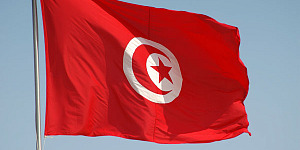Tunisia's central bank raised its key BCT rate by 75 basis points to 5.75 percent, its first hike since May last year, to "face up to the real risks of ongoing inflation in 2018" and lay the groundwork for sound economic growth.
It is the first rate hike by the Central Bank of Tunisia (BCT) following the arrival of its new governor, Marouane el Abassi, who was appointed by the parliament on Feb. 15 after his predecessor Chedly Ayari reluctantly resigned the day before after being fired by Prime Minister Youssef Chaded.
In his speech to the parliament, Abassi - a former World Bank official and economics professor - said Tunisia was facing an extraordinary period that has to be dealt with extraordinary measures.
In addition to rising inflation, Tunisia is facing dwindling foreign reserves as foreign investment and tourism still hasn't fully recovered after attacks by Islamist militants in 2015.
Cuts to government subsidies and price hikes by the government on Jan. 1 were met by widespread protests throughout the country. The government then offered assistance to low-income households to cushion some of the impact of higher prices.
The efforts to reduce fiscal deficits and modernize the economy are part of Tunisia's 4-year, $2.83 billion economic reform program agreed with the International Monetary Fund (IMF) from 2016.
Adding to the country's troubles, the European Union has included the country on a blacklist of 17 jurisdictions it deems tax havens, triggering the firing of the Ayari.
Tunisia's inflation rate accelerated to 7.1 percent in February from 6.9 percent in January and an average rate of 5.3 percent in 2017. Abassi told the parliament that inflation could hit 10 percent if the central bank didn't act.
In December the central bank already widened its interest rate corridor to 100 basis points on each side of the key rate, pushing up the marginal loan facility rate to 6.0 percent.
A rise in money market rates in Tunisia to 5.61 percent last month called for a change to the key rate to ensure coherent rates, the BCT said in a statement from March 5.
Given that international commodity prices, including energy, are likely to rise, the central bank expects "further inflationary pressure over the forthcoming period," describing the rate hike as "proactive action."
Last week the central bank said foreign exchange reserves had dropped to 11.25 billion dinars, enough to pay for 78 days of imports, from 11.9 billion on Feb. 7, the lowest in 15 years.
Tunisia's dinar has been weakening since March 2014 and fell 6.5 percent in 2017 against the U.S. dollar. But this year it has bounced back and was trading at 2.38 to the dollar, up 3.3 percent.
Against the euro, the dinar fell 18 percent in 2017 but has been steady this year, trading at 2.96.





















































